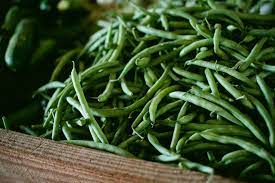
Firstly, introducing Auscrops, a wonderful market vending company bridging farmers and customers together through market vendors. Click here to find out more about french bean as well fruit and vegetable offers.
French Bean – An Introduction
French beans are a type of common bean that is grown in many countries around the world. They have a wide variety of uses, ranging from soups and salads to stews and casseroles. They are also a great source of fiber, protein, and other important vitamins and minerals. Let’s take a look at some interesting facts about french beans.
What Are French Beans?
French beans are also known as green beans or snap beans. They are an annual plant in the Fabaceae family and are native to Central America and Mexico. The beans grow on vines that can grow up to 3 feet tall, with oval-shaped pods that contain several seeds. The pods eaten when they’re young or allowed to mature for use as dry beans.
Nutritional Value
French beans contain many essential nutrients such as fiber, calcium, iron, magnesium, zinc, potassium, phosphorus, vitamin A, vitamin B6, vitamin C, folate and thiamin. They are low in fat and calories but high in protein compared to other vegetables such as broccoli or cabbage. Additionally, french beans contain antioxidants like lutein and beta-carotene which help protect your cells from damage caused by free radicals.
Uses For French Beans
French beans used in many different ways in cooking; they can steamed or boiled for side dishes or used in salads raw or cooked. Also stir-fried with garlic and spices for an Asian twist on the traditional vegetable dish. French beans are also great for making soups and stews because they hold their shape well during cooking without becoming too mushy or soft. Additionally, you can even roast them alongside potatoes for an easy yet delicious side dish!
Conclusion on French Bean
French Beans offer a fantastic nutritional profile that makes them a great addition to any diet plan! From providing essential vitamins and minerals to offering antioxidants which help protect your cells from damage caused by free radicals – there is no denying the health benefits associated with this versatile vegetable!
Click here to read similar articles.
 Français
Français 











